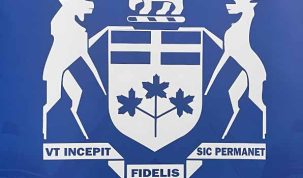The proposed Cutting Red Tape, Building Ontario Act, 2024, part of Ontario’s Fall 2024 Red Tape Reduction Package, will help provide better services, keep costs down, and bolster the economy.
The bill is the next step in the Ontario government’s efforts to modernize legislation, regulations, and policies that have become outdated, burdensome, or inefficient. It also builds on the measures Ontario has taken to date, saving people and businesses 1.5 million hours and more than $1 billion since 2018.
In this bill, the Ministry of Red Tape Reduction is proposing to amend the Modernizing Ontario for People and Businesses Act, 2020 to enhance the province’s ability to measure and report on how government’s actions are impacting individuals. This would help identify areas where processes can be simplified and improved so people can spend less time and money accessing or receiving services, resulting in a more positive experience when interacting with government.
Below is a list of proposed initiatives in the Cutting Red Tape, Building Ontario Act, 2024 and the broader Fall 2024 Red Tape Reduction Package:
Ministry of Agriculture, Food and Agribusiness (OMAFA)
Modernizing the Farm Products Marketing Commission Regulations: The Ontario Farm Products Marketing Commission is proposing to amend regulations under the Farm Products Marketing Act and other legislation. These changes are designed to reduce red tape and remove obsolete requirements on agricultural marketing boards. Additionally, the Commission is reforming processor and dealer licences by making all licences indefinite for holders who are in compliance.
Reducing Burden for Dealerships and Distributors: Ontario is proposing legislative amendments and plans to consult on future regulatory changes to the Farm Implements Act (FIA). These changes would ease administrative burdens, streamline dispute resolution processes, and reduce fees for dealers and distributors.
Ministry of the Attorney General (MAG)
Access to Landlord and Tenant Board Orders for Credit Reporting Purposes, and Greater Public Transparency: Ontario is exploring the feasibility of arrangements with one or more registered consumer reporting agencies to facilitate access to Landlord and Tenant Board orders where tenants have a history of missed payments. This initiative will enhance accountability and strengthen transparency. Ontario will also enhance online information about rights and responsibilities relating to consumer reporting agencies and collection agencies. This initiative will empower tenants by helping them understand their rights and will assist landlords in making more informed decisions when selecting prospective tenants, including accessing rental payment histories. Strengthening the use of credit scores for non-compliance with payment orders will further support a reliable and transparent rental system.
Amending the Election Finances Act: Ontario is proposing amendments to the Election Finances Act that would, if passed, provide the Chief Electoral Officer (CEO) at Elections Ontario with the discretion to forgive longstanding amounts owing to the CEO by any registered political entity in Ontario prior to January 1, 2017. A registered political entity includes a political party, constituency association, nomination contestant, candidate or leadership contestant.
Modernizing the Justices of the Peace Act: One of the ways Ontario is working on reducing backlog is by proposing minor legislative changes to the Justices of the Peace Act to allow for administrative and operational updates to the Justices of the Peace Appointments Advisory Committee. These legislative changes would require the appointment of an alternate judge or justice of the peace to the core committee, the appointment of a newly created Vice-Chair position to the core committee, and the designation of alternate regional leads. This structure would enable the Committee to maintain is operations in the absence of key members.
Speeding Up Operations at the Landlord and Tenant Board: Ontario is proposing legislative changes to the Residential Tenancies Act, 2006 and the Statutory Powers Procedure Act to increase tribunal efficiencies, as well as respond to the Ombudsman’s recommendations regarding the Landlord and Tenant Board’s backlog.
Updating the Courts of Justice Act: Ontario is proposing an amendment to give the Attorney General the same rule-making authority that the Civil and Family Rules Committees have. The Attorney General would be able to exercise the authority subject to prior consultation with the judiciary. Additionally, Ontario is proposing several other amendments to the Courts of Justice Act, including eliminating reference to two defunct committees, updating the judicial membership of the Civil and Family Rules Committees to introduce greater flexibility and making a minor amendment to the vexatious litigant provision that was made as part of the Enhancing Access to Justice Act, 2024. The vexatious litigant amendment will make it clear that the judge who makes a vexatious litigant order does not need be the same judge who initiated the procedure leading to the order.
Modernizing the Expropriations Act: Currently, the only method of publication authorized by the Expropriations Act is publication in print newspapers, which is increasingly challenging for areas of the province with few print newspapers in circulation. Ontario is proposing to amend the Expropriations Act to create a regulation-making power to allow for changes to publication of notice requirements. If passed, regulations could be created to authorize the publication of notices and other documents in electronic formats.
Amending the Family Law Act: Ontario is proposing legislative changes to the Family Law Act and consequential amendments to other statutes, allowing parties to a family arbitration award for support to file the award with the Court for enforcement. Following the passage of the legislative changes, amendments to the Family Law Rules would also be required.
Updating the Juries Act: Ontario is proposing legislative changes to the Juries Act that would authorize the Minister of Health to include the year of birth for prospective jurors in the jury source list, alongside names and addresses. The proposed amendments will enhance the security of the online jury portal, improve public satisfaction with and confidence in the jury system and achieve operational efficiencies.
Modernizing the Professional Engineers Act, Architects Act and Law Society Act – Annual Report Provisions: Ontario is proposing to amend reporting and publication requirements contained in the Architects Act, Professional Engineers Act, and Law Society Act. Currently, annual reports by Professional Engineers Ontario, the Ontario Association of Architects and the Law Foundation of Ontario must be submitted by the Attorney General to the Lieutenant Governor in Council and tabled in the Legislative Assembly. If passed, the proposed changes would remove the tabling requirement, but would still require public posting. This would allow the public to access these publications more quickly and conveniently.
Modernizing the Professional Engineers Act and Architects Act – Building Code (a joint proposal with the Ministry of Municipal Affairs and Housing): Ontario is proposing a change that would align the Architects Act and the Professional Engineers Act with the new Building Code regulation, which requires owners to engage an engineer or architect to conduct a general review of large farm buildings.
Ministry of Citizenship and Multiculturalism (MCM)
Transforming the Heritage Framework: Ontario is committed to transforming its heritage framework to effectively deliver on its core regulatory programs and services. Transforming Ontario’s heritage conservation framework, in consultation with Indigenous communities and sector stakeholders will ensure the conservation of cultural heritage resources, while proactively supporting the government’s priorities of building housing and other critical infrastructure.
Streamlining Approvals for Easement Disposal: Ontario is proposing an amendment to the Ontario Heritage Act to streamline the approval process for releasing parts of conservation easements where the release would not impact the heritage attributes identified and protected in the easement agreement.
Ministry of Education (EDU)
Amending the Education Act: To recognize the position of ‘system principal’ in school boards, Ontario is proposing amendments to the Education Act to introduce a new ‘system principal’ definition that is separate and distinct from that of school principals as currently defined in the Act. This would codify in legislation a role that already exists in school boards across Ontario, and enable system principals to be appointed, as appropriate, to support the implementation of board-wide priority initiatives for high quality student learning.
Ministry of Energy and Electrification (ENERGY)
Amending the Efficiency Regulation: Ontario is amending Ontario Regulation 509/18: Energy and Water Efficiency – Appliances and Products made under the Electricity Act, 1998 (the Efficiency Regulation). These amendments would fully harmonize Ontario requirements and efficiency metrics for 42 products through rolling incorporation by reference to the federal, Natural Resources Canada (NRCan) standards. This means that Ontario’s standards would be automatically updated whenever NRCan revises its standards for these products. The proposed amendments would also remove now obsolete efficiency requirements for three existing products and streamline the regulation.
Hydrocarbon Pipeline Relocation/Reconstruction: Ontario is proposing regulatory changes to broaden the types of hydrocarbon pipeline relocation and reconstruction projects where the Ontario Energy Board can determine that leave-to-construct is not required –streamlining the delivery of infrastructure projects, such as public transit, municipal utilities, flood protection, and housing developments.
Ministry of Environment, Conservation and Parks (MECP)
Reducing Requirements for Brownfield Redevelopment: Ontario is proposing to amend the Environmental Protection Act and O. Reg. 153/04: Records of Site Condition to help reduce barriers to redevelop and revitalize historically contaminated lands (also known as brownfields) where it is safe to do so, putting low-risk sites back into good use and supporting our work to build more homes. The proposed changes would save municipalities and builders time and money by reducing Record of Site Condition registration requirements for the redevelopment of certain lower risk sites, while continuing to ensure that the health and safety of people and the environment are protected.
Removing Barriers for Reuse of Excess Soil: Ontario is proposing to amend its Excess Soil Regulation (O. Reg 406/19) under the Environmental Protection Act to clarify existing regulatory requirements and make it easier and more affordable for municipalities and business in the construction industry to reuse more excess soil excavated from construction sites and infrastructure projects. These changes will continue to ensure strong environmental protections.
Streamlining Environmental Approvals for Ontario’s Fruit and Vegetable Growers: Ontario is supporting fruit and vegetable growers by updating terminology in environmental compliance approvals and working with the agricultural sector to improve guidance and processes such as how spills are reported. These changes will make it easier for growers to demonstrate compliance and address challenges, while protecting the Great Lakes and other waterways.
Streamlining Sewage and Water Distribution Works for Transit Projects: Ontario is proposing changes to help get important transit projects built faster by making it easier for Metrolinx and other transit authorities to make changes to municipal sewage and water distribution works, while maintaining environmental oversight. Currently only developers are pre-authorized to do this type of work under Ontario law. The proposed changes to regulations under the Environmental Protection Act (O. Reg. 208/19) and Safe Drinking Water Act (O. Reg. 172/03) would allow transit authorities to make these changes under the authority of the municipality’s consolidated environmental approvals instead of applying for separate approvals.
Streamlining Permissions While Maintaining Environmental Standards and Protections to Get Housing and Infrastructure Projects Started Sooner: Ontario is proposing changes that would streamline environmental permissions for certain stormwater management works, construction-related water takings, residential geothermal systems, on-site sewage systems, and aggregate washing systems. This would allow municipalities and businesses to self-register these projects online on the ministry’s Environmental Activity and Sector Registry instead of applying for a traditional environmental permission that can take up to a year to obtain.
Ministry of Health (MOH)
Streamlining the Assistive Devices Program: Based on input from the community, Ontario is making it easier and more convenient for people with vision loss to receive more support closer to home. Ontario will increase coverage to 100 per cent for white canes and cane tips while also modernizing its processes to reduce burden on clients and the sector such as eliminating the need to be re-authorized annually.
Providing Clarity of the Quality of Care Information Protection Act: Ontario is revoking O. Reg 297 and O. Reg. 330 under the Quality of Care Information Protection Act, 2004 since that Act was repealed in 2016 and replaced by the Quality of Care Information Protection Act, 2016 and related new regulations. This will remove duplication to ensure ongoing clarity for health care providers with no impact for the public.
Repealing the University Health Network Act: Ontario is proposing to repeal the University Health Network Act which is no longer needed as University Health Network has been operating under Ontario’s Not-for-Profit Corporations Act, 2010 since March 1, 2024. University Health Network continues to provide publicly funded health care services as usual.
Ministry of Infrastructure (MOI)
Centralizing the Broader Real Estate Authority: Ontario is taking the next step in its plan to establish a framework to improve the management of the province’s real estate, by proposing to realign the realty authority of various provincial entities and/or proposing to centralize some entities’ authorities under the Minister of Infrastructure. As part of the Centralization of Broader Real Estate Authority initiative, the Ministry of Infrastructure is proposing legislative changes that would remove/limit or modify the realty authority of 12 entities to acquire, control, hold or dispose of real property interests.
Advancing Digital Twins: Ontario is piloting digital modelling tools, known as digital twins, to help deliver key infrastructure projects such as hospitals, highways and transit on time and on budget. Digital twins are virtual models of physical objects that can help to identify potential risks and challenges before construction begins. This helps to predict – and avoid – costly and dangerous utility conflicts, thereby improving worker safety, saving money and ensuring projects are completed on time.
Updating the Legislative Assembly Act: Ontario is proposing legislative changes to the Legislative Assembly Act (LAA) that would allow the planning and procurement work on the Queen’s Park Restoration Project to be under the purview of the Minister of Infrastructure.
Ministry of Labour, Immigration, Training and Skills Development (MLITSD) and Ministry of Finance (MOF)
Establishing the Ontario Payroll Burden Reduction Consultative Forum: Ontario is creating a new consultative forum to provide expert advice and recommendations on reducing administrative payroll burden for Ontario businesses. The Ontario Payroll Burden Reduction Consultative Forum will provide government with feedback on new policy decisions, ensuring that unintended payroll consequences are addressed early as we continue to modernize the regulatory environment for Ontario employers.
Ministry of Long-Term Care (MLTC)
Streamlining and Improving the Health Assessment Form: Ontario is streamlining and improving the Health Assessment Form by removing irrelevant and clarifying questions, improving the form’s layout and updating requirements to align with current best practices. These updates aim to create a less burdensome and less confusing process for those seeking long-term care, making it more accessible for Ontario’s most vulnerable populations.
Ministry of Mines (MINES)
Updating Service Standards in the Mining Act: Ontario is proposing a legislative amendment to the Mining Act to provide the Minister of Mines with new regulation-making authority to set service standards. The Minister would have the flexibility to respond to developments in the industry as well as to include new service standards, as required. This would provide mining proponents that seek to explore and develop mining claims with transparent, clear, and predicable information which will reduce administrative burden. If the amendment is approved and passed, the Ministry of Mines would consult on proposed service standards that would exercise this authority.
Modernizing the Mining Act for Recovery of Minerals: Ontario is proposing to put forward new regulatory provisions under the Mining Act to allow for interested proponents to recover residual metals and minerals from tailings and mine wastes at operating, closed, or abandoned mine sites in the province, which is necessary to support their adoption of modern mining and processing technologies and movement to a low-carbon economy to protect the environment.
Ministry of Municipal Affairs and Housing (MMAH)
Streamlining Qualifications Process for Building Officials: Ontario is proposing regulatory changes to make it easier for building officials to work across provincial boundaries. This change would allow building officials in Manitoba to practice in Ontario, helping to address current shortages of municipal building officials in Kenora and other communities in Northern Ontario.
Removing Barriers to Building Additional Residential Units: Ontario is standardizing rules and removing barriers to give homeowners more flexibility and design options for building a variety of additional residential units, including garden suites, laneway homes, and basement apartments. The proposed regulation would reduce or eliminate the need for landowners to obtain a rezoning or minor variance prior to construction. This could result in direct cost and time savings on a project-by-project basis and ultimately support the creation of more homes throughout the province.
Engineering and Architecture Stamps: Ontario is exploring opportunities and will be engaging stakeholders to streamline discretionary municipal third-party review of engineer and architect stamped designs for building permit applications.
Enabling Wider Use of Pay-on-Demand Surety Bonds: Ontario is helping enable wider use of pay-on-demand surety bonds for home builders to secure municipal obligations that are conditions of land-use planning approvals. The increased use of pay-on-demand surety bonds will help to unlock funding for home builders to invest in new housing projects while still offering municipalities the assurance of timely access to funds, similar to a Letter of Credit. This change will also ensure local governments have the financial security they need to approve new housing-enabling infrastructure.
Ministry of Natural Resources (MNR)
Amending the Algonquin Forestry Authority Act: Ontario is proposing to amend the Algonquin Forestry Authority Act to give the Algonquin Forestry Authority’s Board of Directors the authority to appoint a general manager, replacing the current process which requires an Order-in-Council. Replacing an appointment process with an application/hiring process will reduce administrative burdens and attract a larger range of applicants to the position.
Ministry of Northern Development (MND)
Northern Services Boards Act (NSBA) Modernization: Ontario is proposing to address feedback from Local Service Boards (LSBs) to cut red tape, including reducing burdensome administrative processes, improving language clarity in the act, increasing the current Board term from one to three years, allowing LSBs to provide fire protection services outside of their geographical boundaries and changing the requirement of an annual financial audit to an annual financial review engagement.
Ministry of Public and Business Service Delivery and Procurement (MPBSDP)
Addressing Illegal Selling of New Homes: Ontario is proposing to amend the Ontario New Home Warranties Plan Act to clarify Tarion’s regulation-making authority so it can help address illegal new home builders who are taking advantage of Tarion’s guarantee fund. The proposed amendment would enable Tarion to make future changes to regulation to help identify illegal builders, better manage Tarion’s deposit protection liability and ensure the sustainability of its guarantee fund. This will ensure fair treatment of legal builders who pay into the fund and crack down on illegal builders who are cutting costs by not paying into the fund. Early identification of illegal builders will also help to protect Ontarians buying a new home so they can make their purchase with more confidence.
Updating the Land Titles Act: Ontario is proposing amendments to the Land Titles Act. The amendments would improve language in the Act to clarify criteria and requirements for making a claim to the Land Titles Assurance Fund and remove a duplicative compensation provision. These amendments would also remove a frequently misunderstood consumer-initiated application to withdraw land from the Act, while maintaining the Director’s ability to withdraw land if necessary. These changes will benefit the people of Ontario by providing clear criteria, ensuring that individuals no longer waste time and money preparing ineligible applications. If passed, this will reduce cost, effort, legal fees and time for Ontarians, as well as reduce the frequency of unnecessary Tribunal hearings.
Streamlining the Dedicated Locator Model/Supporting Broadband Expansion: Ontario is proposing amendments to the Ontario Underground Infrastructure Notification System Act, 2012 to expedite the locates process and reduce costs and administrative burden so that vital infrastructure such as broadband can be built more efficiently, while also maintaining public safety. These amendments will offer infrastructure project owners and underground infrastructure owners/operators more options in the selection of the locates vendor. These changes will also allow underground infrastructure owners the opportunity to complete their own locates under specific circumstances.
Ministry of Red Tape Reduction (MRTR)
Burden Reduction for Individuals: Ontario is proposing amendments to the Modernizing Ontario for People and Businesses Act to introduce requirements for government ministries to measure and report on government activities that reduce burden on individuals. This change will facilitate government-wide reporting on burden reduction for individuals.
Ministry for Seniors and Accessibility (MSAA)
Remove an outdated regulatory reference under the Retirement Homes Act: Ontario is proposing amendments to Ontario Regulation 166/11 under the Retirement Homes Act, 2010 (RHA) to replace the reference to the “Community Homelessness Prevention Initiative” with the “Homelessness Prevention Program”. This will correct the outdated name of a Ministry of Municipal Affairs and Housing program prescribed as being exempt from the RHA definition of a “retirement home” and will clarify the accountability framework for these beds/suites.
Ministry of Sport (SPORT)
Amending the Combative Sports Act: Ontario is proposing changes to the Combative Sports Act, 2019, to allow for the latest versions of related documents to be incorporated in regulations, such as the World Anti-Doping Agency’s List of Prohibited Substances and Methods, and the technical rule sets of Provincial Sport Organizations, to ensure the Act is aligned with the latest rules and standards in combative sport to keep competition fair and safe for athletes.
Ministry of Transportation (MTO)
Updating Electronic Logging Device (ELD) Exemptions for RVs: Ontario has amended the Highway Traffic Act (HTA) to exempt commercial motor vehicle drivers who sell, lease or transport recreational vehicle (RV) trailers from provincial electronic logging device (ELD) requirements. Under this amendment, these drivers are now allowed to maintain a Record of Duty Status in an alternate format to an ELD when driving in Ontario. This change to the HTA aligns Ontario with Canadian and U.S. exemptions for the RV towaway sector, making it easy for operators to deliver RVs from the U.S. into Ontario.
Extending Semitrailer Program: Ontario has introduced special vehicle configuration permits that allow approved commercial vehicle operators (also known as carriers) to use extended semitrailers to transport lighter, bulkier cargo. This reduces the number of trucks on Ontario’s highways and roads — as well as the number of trips required — helping carriers save fuel and reducing the costs of goods for families and business.
Simplifying RV Definitions and Licence Requirements: Ontario is proposing to amend the Highway Traffic Act to give more drivers the opportunity to operate motor homes that exceed 11,000 kilograms gross weight or registered gross weight without having to take a knowledge and road test to get a Class D licence. Instead, drivers can take a new Motor Home Learning Module that educates them on how to operate motor homes safely instead.
Freezing Driver Testing Fees: Ontario is amending the Highway Traffic Act to freeze fees for knowledge and road tests at their current levels. This change will make it more affordable for Ontario drivers and driver trainees to complete knowledge and road testing.






















